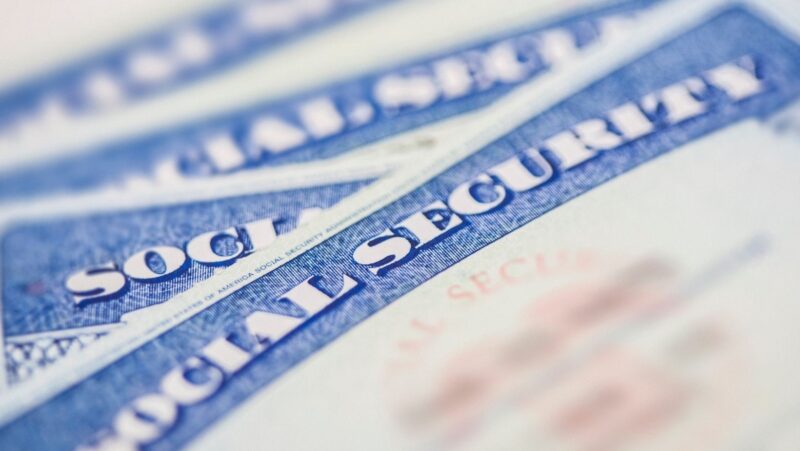For expatriate Americans considering relinquishing their citizenship, the question arises eventually: Can I still get Social Security after I renounce? It’s a reasonable inquiry, after all, if you’ve contributed to the system for decades, you don’t want that cash to be left behind.
The short answer is: yes, you can still receive Social Security benefits after giving up your U.S. citizenship. But as with most aspects of international taxes and benefits, there are some conditions and details that you need to know.
What Happens to Your Social Security After Renouncing?
If you’ve worked in the U.S. and paid into Social Security long enough to qualify for retirement benefits, you’re generally entitled to those benefits whether you’re a citizen or not.
The Social Security Administration (SSA) considers your work history and contribution record, not your citizenship status, when determining your eligibility.
As long as you have the 40 quarters of coverage (approximately 10 years of work), you can still be paid monthly even after renunciation.
Who Can Get Social Security After Renouncing?

You can get Social Security after relinquishing your citizenship if:
- You qualify on your earnings record
- You are resident in a country where SSA can send payments
- You are not excluded because of individual disqualifying situations (e.g., employment by specific governments or renunciation under national security limitations)
Your country of residence matters. The SSA keeps a list of countries from which payments can and cannot be made.
Countries Where You Can Receive Payments
Good news: Most countries do not object to U.S. Social Security checks being mailed or deposited.
Examples of countries where you can still receive payments:
- United Kingdom
- Australia
- Canada
- Germany
- France
- New Zealand
If you reside in a country on the proscribed list (such as North Korea or Cuba), you will not be able to receive your benefits when living there. However, when you relocate to an approved country, payments can restart.
Will You Be Taxed on Those Benefits?
Even if you renounce, if you’re receiving U.S. Social Security payments, you might still have to pay U.S. tax on that income depending on where you reside.
Luckily, the U.S. has tax treaties with most countries that:
- Cancel double taxation
- Taxation of U.S. Social Security income reduced or exempted
For instance, if you’re resident in the UK, the UK alone taxes your U.S. Social Security. In Australia, it’s exempted under the tax treaty
Always review the conditions of your country’s tax treaty with the U.S. or seek the advice of a tax expert.
What About Medicare?
This is where things get a little different. Although you might still be eligible for Social Security, Medicare coverage typically stops if you are living outside the United States.
Medicare normally won’t pay for medical care you receive outside the U.S. So even if you’re collecting retirement benefits, you might have to rely on private insurance or the healthcare in your host country.
How to Apply for Benefits If You’ve Renounced
You can apply for Social Security benefits from abroad by contacting the Federal Benefits Unit (FBU) that serves your country.
You’ll need to provide:
- Proof of your U.S. work history (SSN, W-2s, etc.)
- Identity documents and foreign passport
- Foreign address and banking details for international direct deposit
The application process is similar to applying from within the U.S., but it may take a little longer.
Can Family Members Still Receive Benefits?
If your spouse or dependent kids are eligible for benefits based on your employment history, they will also be eligible, even after you’ve renounced.
But they’ll have to meet the residency requirements and there may be rules about immigration or citizenship status
And the same regulations regarding where they reside (and where SSA can mail checks)
Final Thoughts
Forgetting U.S. citizenship does not forfeit your Social Security benefits. If you’ve qualified for them, they are still yours, but where you reside, how you claim, and how those benefits are taxed all may differ.
If you’re going to renounce, be sure to:
- Review SSA eligibility requirements and country limitations
- Learn how the new country taxes U.S. Social Security
- Seek assistance from an expat tax professional or FBU as necessary
FAQs
Do I qualify for Social Security if I give up my U.S. citizenship?
Yes, provided you meet the requirements and reside in a country that allows payments.
Will I be taxed on my benefits after giving up my citizenship?
Perhaps. It will depend on your residence country and whether there is a tax treaty.
What happens if I relocate to a country where SSA does not make payments?
Payments will be interrupted while you reside there but can be restarted when you relocate to an allowed country.
Am I eligible for Medicare if I am overseas?
No. Medicare benefits are not available outside the U.S., even if you are eligible.
Can my children or spouse get benefits from my employment history?
Possibly. It depends on their relationship, age, and residency/immigration status.
You can collect Social Security despite renouncing, but you must be knowledgeable, proactive, and well-established to make it occur.



